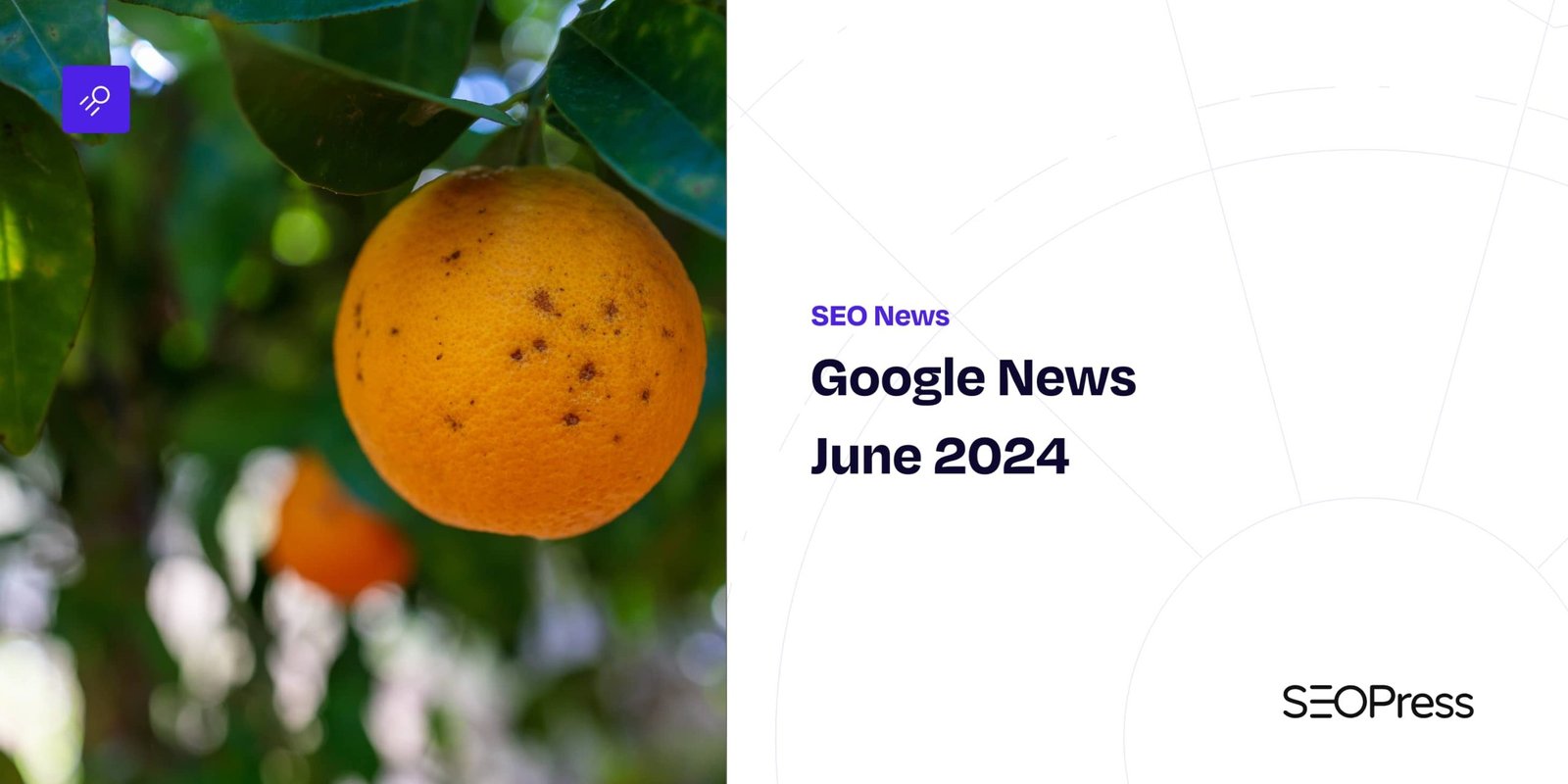
June 20th – June 2024 Spam Update
The June 2024 Spam Update appeared on the Google Search Status Dashboard on June 20th and was marked as finished on June 27th, but Google didn’t give much information on what type of Spam this update was targeting. There was no blog post and the incident on the dashboard simply linked to the March 2024 post Google Search spam updates and your site.

The update was notified on the new Google Search Central LinkedIn account and on X. On X, Barry Schwartz quickly responded to the announcement with a question wondering whether this update was the algorithmic element of the new Site Reputation Abuse policy announced with the March 2024 Spam Update (this policy came into effect on May 5th with a series of manual actions). He got what looks like a rather tetchy reply from Danny Sullivan via the Google Search Liaison account, saying that the June 2024 Spam Update was not linked to the site reputation abuse policies and that people didn’t have to ask “are we there yet” every week.
It’s not. As I’ve shared before, I have ever confidence that when it is, we’ll share about that. Also, apologies for my original response below, which I’ve deleted but will also screenshot for the context. I know the important work you do (especially because we used to work… pic.twitter.com/xMurvQadlq
— Google SearchLiaison (@searchliaison) June 21, 2024
Apart from the Spam Update not being linked to the Site Reputation Abuse policy, we don’t know much else about the objective of this update. It could be related to any of the 15 other Spam policies for Google Search including link spam.
The dates of the roll-out did correspond to some notable turbulence in rank tracking tools. Country-by-country reports from SEMRush, however, show that volatility was recorded mainly in the US. Other countries, such as the United Kingdom, recorded volatility before and after the update but had a calm ride while the update was rolling out. If you are using SEOPress Insights you can check if your ranking dropped or peaked from June 20th to June 27th.

AI Overviews, one month later
As we reported in May, AI Overviews was launched on May 14th in the US. This new feature was previously available to test in Google Labs and known as Search Generative Experience or SGE. Displayed at the top of the search results, the AI-generated answers contain links to websites, but these are not necessarily the same links (or sites) ranking in organic results.
Research by SERanking shows that AI Overviews (note that they are shortening the name to “AIO” in the article) is showing for only 8.7% of searches at the start of June. This is a major decrease compared to SGE. In tests performed by SERanking on the same sample of 100.000 keywords in January 2024, AI-generated responses were available for 64% of queries. However, the vast majority of those answers were only available after clicking on a Generate button that is not visible in AI Overviews. Tests in January detected that AI-generated responses were shown directly for 18.9% of queries and available via the Generate button 45.1% more queries.
The SERanking study also showed that the average length of an AI-generated response was 4432 characters and that the most common number of links in an answer was 4, visible after the answer is expanded using the “Show More” button.
In response to users’ questions on the new feature, Google Search Help Community Manager Ashwarya published a FAQ on AI Overviews on behalf of the Google Search team on June 18th. This goes over the fact that AI Overviews (like Featured Snippets) cannot be turned off and confirms that the feature only exists for English queries in the US, but that it should be gradually rolling out to other languages and countries. The FAQ also contains the warning, “Generative AI is experimental and can make mistakes. We’re constantly improving accuracy to ensure AI Overviews uphold Search’s quality standards”.
On June 26th, Bartosz Góralewicz posted a screen shot on X showing a new layout for AI Overviews. He suggests that this new layout, which shows links to websites at the top of the AI-generated response may shortly be the standard format for all users. Reporting on this on SEO Roundtable, Barry Schwartz points out that this layout would certainly drive more traffic to publishers, but he had no confirmation from Google that this was anything more than a test at this stage.

Search Off the Record podcast with Elizabeth Tucker
Elizabeth Tucker has come to the forefront in recent months as a new spokesperson for Google Search. She penned the New ways we’re tackling spammy, low-quality content on Search article that presented the big March 2024 updates. She was also the opening keynote guest at SMX Advanced conference on June 11th.
Her latest appearance was on the Search Off the Record Podcast recorded with Lizzi Sassman and John Mueller released on June 27th. In this interview she goes over her 19-year career at Google. The first fifteen as a data scientist and more recently as product manager. She is presented by Lizzi as a someone from the Search Quality team, but she later qualifies her position as a director of product management and search quality. It appears that she was head of the project that led to the Core and Spam updates released on March 5th, but she also works on simultaneously on other projects intended to deliver improved search quality. She goes into some interesting detail on how search quality is measured by Google including the assessment that, thanks to the March 2024 updates, users now see 45% less low-quality, unoriginal content in search results.
An interesting portion of the podcast is where she talks about the realization that as Google gets better at understanding long queries, the more users give it long, more complex queries to answer. Whereas a 4-word search query was considered long when she started working at Google, it is currently not unusual to see 10-to-20-word queries fairly routinely. This has a big impact on how the search engine actually works today compared to 19 years ago and means that it is well beyond simply matching keywords from the search query to the content of a page. An example she gives is the search for “how tall is Barack Obama”. The current Google will not search for pages that contain the words “tall” and “Barack Obama” (as Google did 20 years ago) but pages containing the correct answer (which is “Barack Obama is 1.87 m tall”).
You can listen to the podcast episode below. It also features cute kittens.
An earlier Search Off the Record podcast was also released in June. This time John and Lizzi are joined by Gary Illyes for Trouble: Cosmic Rays & Crawlers: When Google Search is under the weather.



